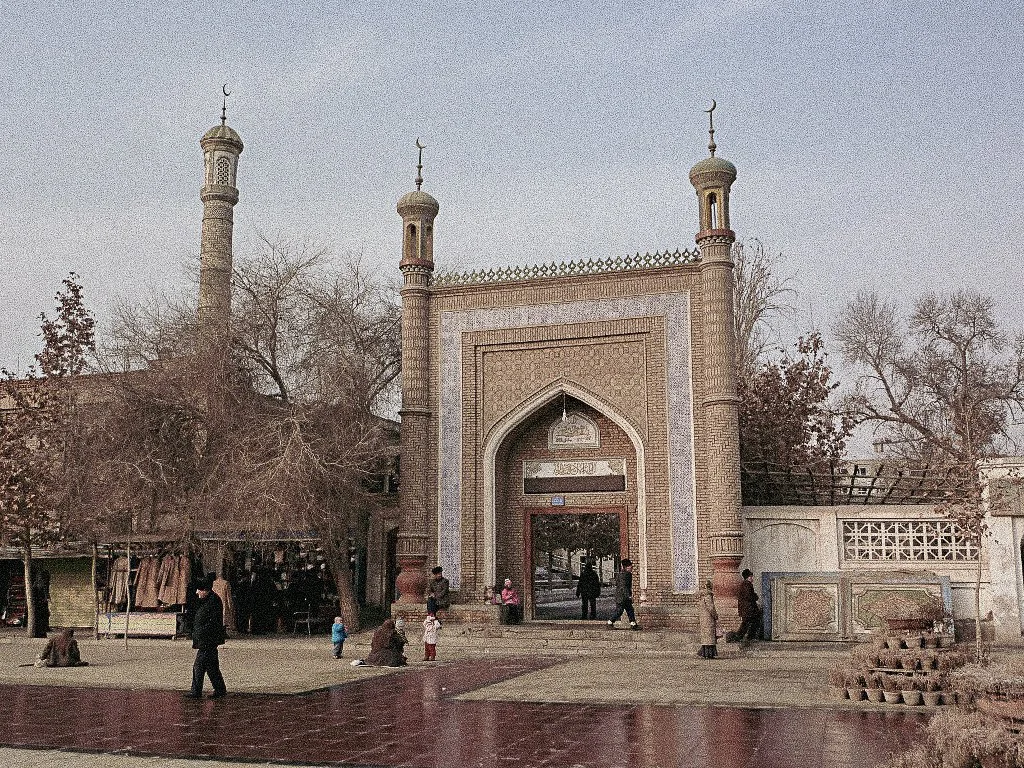اجداد Echoes Along the Silk Road: Uyghur Heritage and Philosophy in Kashgar, Hotan, and Yarkand
Across the shifting sands and ancient paths of Xinjiang, nestled among soaring mountains and vast deserts, lie cities that once resonated as vibrant crossroads of the Silk Road—Kashgar, Hotan, and Yarkand. For millennia, these cities have stood as sentinels, each a guardian of Uyghur heritage, preserving traditions and ethics born from the ceaseless ebb and flow of merchants, scholars, and caravans traversing these historic routes.
Kashgar, known by names echoing through time—Kashi, Kashgaria, Shule—has long been the beating heart of cultural and economic exchange in Central Asia. The city’s very essence lies in its bustling bazaars, where the air carries an intoxicating blend of spices, silks, and incense. Here, beneath the shaded walkways and domed ceilings of the Grand Bazaar, one can sense echoes of countless conversations in Uyghur, Persian, Chinese, Arabic, and Turkic tongues—a living testament to centuries of interaction.
Historically, Kashgar was where eastern silk met western gold, where Persian textiles were exchanged for Himalayan salt, and Indian spices mingled with Mediterranean glassware. It became a haven for artisans, philosophers, and traders, a city whose pulse mirrored the rhythm of the caravans. The old city's twisting alleyways still recall those prosperous days when Uyghur merchants negotiated deals over tea and nan bread, sealing agreements with honour rather than ink. Trust was their most valued currency, ethics their strongest bond.
Uyghur poet Lutpulla Mutellip wrote profoundly about Kashgar’s significance:
"In Kashgar's heart, trade's mighty stream,
Converging paths, as in a dream,
Where life's caravan meets destiny,
Echoes of eternity."
Farther east lies Hotan, once famed as the City of Jade. Hotan’s identity is intricately woven into its jade trade, a tradition tracing back thousands of years. This luminous stone, extracted from the Kunlun mountains and rivers flowing through Hotan, has shaped the region’s heritage profoundly. Uyghur folklore speaks reverently of jade’s purity, associating it with moral integrity, nobility, and spiritual harmony.
Philosophically, jade embodies the Uyghur belief in balance and harmony. Just as jade reveals its brilliance only when carefully polished, so too, human virtue and wisdom manifest through patience, effort, and perseverance. Uyghur traditions stress this intrinsic relationship between effort and reward, purity and virtue—a philosophy deeply embedded in their ethical worldview.
Hotan jade, carried along trade routes that stretched as far as Rome and Damascus, symbolized prosperity and virtue. Today, artisans meticulously preserve ancestral techniques, shaping jade into exquisite ornaments and talismans that embody Uyghur ethics—patience, diligence, and harmony with nature. To hold a Hotan jade carving is to touch a history that bridges generations, cultures, and continents.
The city of Yarkand stands quietly yet significantly, an ancient oasis where poetic verses and melodies flow as naturally as the rivers irrigating its fertile plains. Renowned for its literary tradition, Yarkand was historically a crucible for Uyghur intellectual life. Here, in ornate madrasas shaded by poplars and mulberry trees, poets, musicians, and scholars gathered, their voices intermingling with the gentle rustle of manuscripts and scrolls.
Uyghur maqam music, deeply rooted in Yarkand’s cultural fabric, reflects the city’s historical role as a crossroads. Comprising twelve intricate suites, the maqam repertoire encapsulates a profound emotional range—from joyous celebrations of love and harvest to somber reflections on loss and spirituality. This musical heritage, passed meticulously from master to apprentice, remains a vibrant testament to the community's dedication to preserving their intangible culture amid the ever-changing tides of history.
Renowned Uyghur poet Abdurehim Ötkür captured the philosophical spirit of Yarkand’s poetic tradition:
"Life, a caravan crossing sands of fate,
Truth hidden in verses, never late,
Each step, a rhythm in time’s embrace,
In poems, our souls find their place."
Ethics and traditions in these cities have been profoundly shaped by their position along trade routes. The Uyghur concept of hospitality, deeply embedded in the social fabric, arose naturally from interactions along these pathways. Travelers were welcomed as family; sharing food and shelter was not merely a courtesy but a sacred obligation. This hospitality, known as "mehmandarchilik," became legendary, echoing far beyond Xinjiang’s borders.
Yet, the trade routes also carried with them challenges—conflicts, cultural confrontations, and negotiations over scarce resources. Uyghur ethics thus developed around principles of diplomacy, fairness, and resilience. In bazaars and caravanserais, conflicts were often settled not by force, but through wise mediation, guided by elders who drew upon centuries-old customs.
Today, as these ancient cities grapple with modern complexities, their heritage remains resilient, sustained by traditions deeply rooted in their historical roles as cultural crossroads. Despite transformations wrought by modernity and globalization, Uyghur communities in Kashgar, Hotan, and Yarkand persist in celebrating festivals, storytelling, music, and craftsmanship as acts of cultural resistance and continuity.
Every thread woven into Uyghur carpets, every verse recited in twilight gatherings, every piece of jade carved by skilled hands is more than mere cultural artifact—it is an affirmation of identity, resilience, and dignity. As the sands shift around Xinjiang's ancient cities, the spirit of the Uyghur people endures, a timeless melody echoing along the trade routes where history and heritage converge, forever shaped by the profound wisdom embedded in their poetic traditions.


